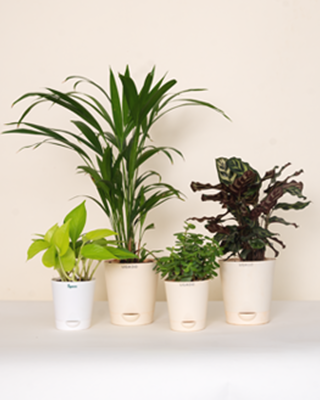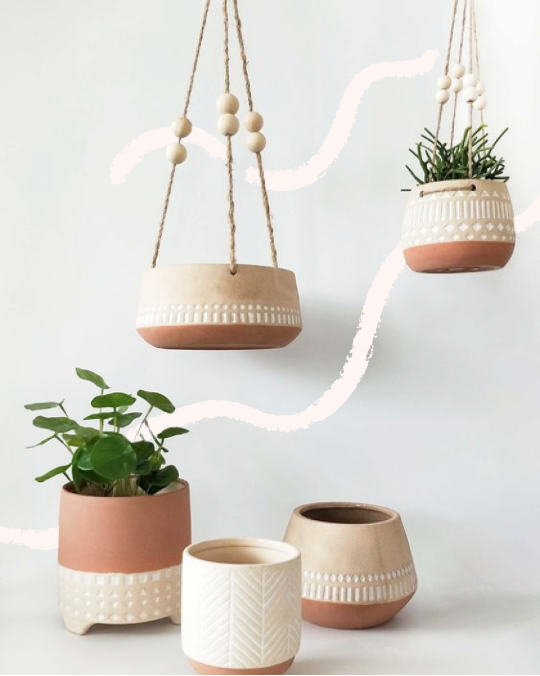Petunia plants are beloved for their vibrant and abundant flowers, making them a popular choice for gardeners and flower enthusiasts. In this comprehensive guide, we will delve into the world of petunias, covering everything from their various types to their care requirements and the benefits they bring to your garden. Whether you're a beginner or an experienced gardener, this article will provide you with valuable insights and tips for successfully growing and nurturing petunia plants.
▶Petunia Types:
Petunias come in a wide range of types, each with its unique characteristics and growth habits. Here are some popular petunia varieties:
➡Grandiflora Petunias:
Grandiflora petunias are known for their large and showy blooms, often measuring up to five inches in diameter. They come in a variety of colors and patterns, making them perfect for adding a splash of color to your garden.
➡Multiflora Petunias:
Multiflora petunias produce numerous smaller flowers and are more tolerant of adverse weather conditions, such as rain and wind. They are ideal for garden beds, borders, and containers.
➡Wave Petunias:
Wave petunias are characterized by their spreading growth habit and abundant cascading blooms. They are excellent for hanging baskets, window boxes, and ground cover.
➡ Petunias:
Surfinia petunias are a type of trailing petunia that is perfect for creating stunning displays in hanging baskets and containers. Their cascading branches produce a profusion of flowers throughout the season.

▶Petunia Plant Care:
To ensure the health and vitality of your petunia plants, proper care is essential. Here are some key factors to consider:
-
Sunlight Requirements:
Petunias thrive in full sunlight, ideally receiving at least six hours of direct sunlight per day. Place them in an area that gets ample sunlight for optimal growth and abundant blooms.
-
Soil Preparation:
Prepare a well-draining soil mix enriched with organic matter before planting petunias. Good drainage is crucial to prevent waterlogged roots, which can lead to root rot.
-
Watering:
Water petunias regularly, especially during hot and dry periods. Keep the soil moist but not overly saturated. Watering from the base of the plant or using drip irrigation helps prevent wetting the foliage and reduces the risk of fungal diseases.
-
Fertilization:
Feed your petunia plants with a balanced, water-soluble fertilizer every two to three weeks during the growing season. This will provide them with the necessary nutrients for healthy growth and abundant blooms.
-
Deadheading:
Remove faded flowers regularly to promote continuous blooming. Deadheading redirects the plant's energy from seed production to flower production, resulting in more vibrant blooms.
Buy Plant Care Products
▶Petunia Benefits:
Aside from their aesthetic appeal, petunia plants offer several benefits to your garden:
✔Pollinator Attraction:
Petunia flowers are known to attract pollinators such as bees, butterflies, and hummingbirds. By planting petunias, you can support local ecosystems and encourage pollination in your garden.
✔Versatile Landscaping Options:
Petunias are incredibly versatile and can be used in various landscaping settings. They thrive in garden beds, borders, hanging baskets, containers, and even as ground cover, allowing you to create stunning displays wherever you choose to plant them.
✔Extended Blooming Period:
With proper care, petunias can bloom from spring to fall, providing you with a long-lasting burst of color and beauty throughout the growing season.
Buy Petunia Seeds
Petunia plants are a fantastic addition to any garden, offering a wide range of colors, types, and growth habits. By following the care guidelines outlined in this article, you can enjoy the vibrant blooms and numerous benefits that petunias bring. Whether you're a novice gardener or a seasoned plant enthusiast, the versatility and beauty of petunias make them a must-have in your garden.
Read More-
Sahadevi Plant: Care, Benefits, and Uses for Vastu
How to Care for your Fittonia?













